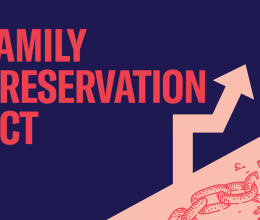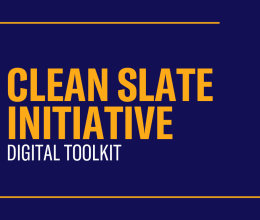
Kentucky is suffering a crisis of mass incarceration and family separation. We have the third-highest rate of children with an incarcerated parent, forcing many children to live with other caregivers. This is largely fueled by draconian sentencing from the failed war on drugs and the belief that incarceration, instead of treatment, is the solution to substance use disorder.
The Kentucky Department of Corrections (DOC) has long neglected the needs of these children. This has become even worse since the start of the pandemic. DOC was slow to adapt at the start, endangering staff and incarcerated people, and killing X. They have continued this trend by refusing to adapt to our new normal and keeping incarcerated people in what is effectively solitary confinement despite approval from public health officials to restart family visitation and other programs.
Currently, DOC only allows virtual or in-person visits during the week, when children are in school. They require in-person visitors to be 18 or older and vaccinated, restrict visitors to two at a time, and allow only one visit per month. DOC is continuing virtual visits for the foreseeable future, but restricts them to weekdays, forcing children to choose between their education and their families.
Research suggests the strength of the parent-child bond and the quality of the child and family's social support systems play significant roles in a child's ability to overcome challenges and succeed in life. However, by neglecting their needs, DOC is increasing the likelihood they will experience psychological strain, display antisocial behavior, be suspended or expelled, undergo economic hardship, participate in criminal activity, and use drugs.
Read the personal experience of one Kentucky teenager:
“Imagine meeting your dad for the first time. First you have to go through two metal gates, two steel doors, a metal detector, and – the worst part – you have to let someone pat you down and search you. This was my reality in January 2020. It was one of the scariest moments of my life but also so fulfilling at the same time.
I can count on one hand how many times I got to see my dad after that due to pandemic restrictions. As I write this, it has been 490 days since I saw my dad in person. Luckily for me, my mom does everything in her power to set up video and phone calls every time he is able. Even though these just started earlier this year, they have been a way for me to connect with him, though talking on the phone makes it hard to get to know him since we are in the early stages of our relationship.
A lot can change in 19 months. Last year, on Father's Day, I became a teenager without one of the most important people in my life there to celebrate with me. Fast forward one year later and the restrictions were finally lifted if I were vaccinated. Despite being vaccinated, my mom found out I would not be able to go simply because of my age. Imagine telling a 14-year-old girl, on her birthday, that she doesn't get to go and see her dad.
I understand my dad has done some things he needs to pay the consequences for. But most of the time it feels as though I am paying the price too. My connection with my parents is so important, and I feel like there are so many things standing between me having a relationship with my dad.
The rest of the world has opened back up just like normal, and I can go anywhere without a mask because I am vaccinated. The grocery, concerts, the mall, the movies, you name it. Yet, I am not allowed to see my dad until they decide its time. For one minute I wish people in charge would just try to put themselves in my position. If they had that kind of empathy, I can guarantee they would find a way to safely reopen visitation ASAP.
I am just a teenage girl, who misses her dad.”
– RRM, whose parent is incarcerated.
The pandemic has exacerbated long-running failures in the system. DOC leadership is refusing to meet the needs of incarcerated people and their loved ones, and many officials are using the pandemic to justify their failures. Corrections and elected officials must understand the unique dynamic of families to ensure rehabilitation and reentry programs keep families connected and promote successful reentry upon release.
ACLU of Kentucky Smart Justice Advocates are a group of Kentuckians directly affected by the criminal legal system. They help lead the ACLU of Kentucky’s justice reform work because the people most affected by an issue often have the best solutions. Learn more and get involved at ACLU-KY.org/SmartJusticeAdvocates. Follow @ACLUofKY on Facebook, Twitter, and Instagram to stay up to date and get involved.



